1. Los Angeles, California
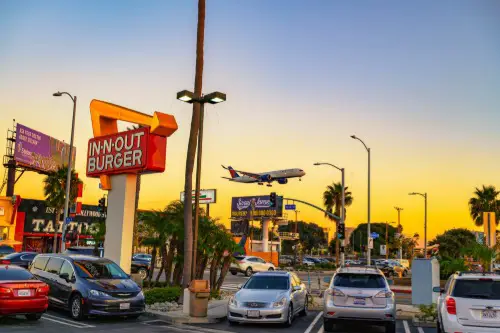
L.A. is where entertainment, innovation, and futurism collide in a big, bold way, according to Andrew Dubbins from LAmag. The city is a testing ground for urban air mobility, including flying taxis and delivery drones. It’s also pioneering smart infrastructure with its Mobility Data Specification, a framework now used worldwide. And in true Hollywood style, robots delivering food are practically normal here.
The city’s sustainability efforts are just as ambitious. L.A. plans to be carbon neutral by 2050, with massive solar farms and aggressive EV adoption. The Hyperloop concept was born nearby, and SpaceX’s presence adds a literal rocket-fueled edge. Even the public art often features augmented reality—blurring the line between the physical and digital worlds.
2. San Francisco, California
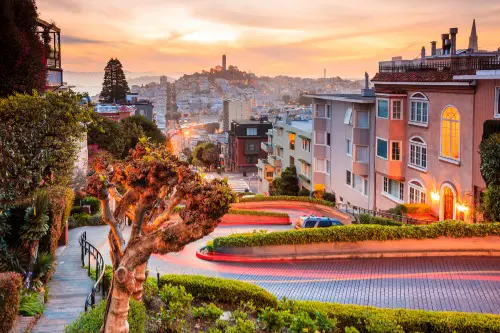
San Francisco’s reputation as a tech utopia is well-earned, thanks to its proximity to Silicon Valley and its dense population of software engineers and entrepreneurs, Troy Segal from Investopedia explains. The city was an early adopter of robot food delivery services, AI-powered surveillance systems, and public charging stations for electric vehicles. It’s also experimenting with driverless taxis through companies like Waymo and Cruise. Walking through neighborhoods like SoMa or the Mission, it can feel like a sci-fi film set.
But the future vibe goes beyond gadgets. The city invests heavily in green architecture, like Salesforce Tower, which uses cutting-edge ventilation and power systems. Public transit, while not perfect, includes app-integrated, clean-energy options like Muni’s electric buses. Plus, its tech-friendly legislation often becomes the blueprint for the rest of the country.
3. Seattle, Washington
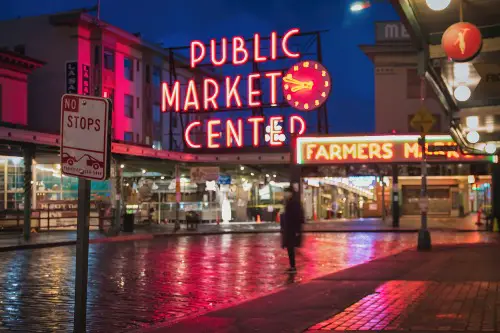
Seattle is where innovation, sustainability, and urban planning intersect in some seriously futuristic ways, according to Francesca Carter from Silver Door. Amazon Go stores—with their grab-and-walk technology—originated here and have expanded rapidly. The city is a leader in smart building tech, with skyscrapers that automatically adjust lighting and temperature for efficiency. It’s also on the cutting edge of clean energy, with ambitious goals to become carbon neutral.
Seattle’s public spaces feel next-gen too. There are sensor-activated streetlights, high-speed fiber internet hubs, and rainwater collection systems that feed urban gardens. The city’s transit system is evolving rapidly, including light rail expansions and bike superhighways. And with Microsoft and Amazon pushing smart city initiatives locally, Seattle is constantly beta-testing the future.
4. Boston, Massachusetts

Boston is one of America’s oldest cities, but don’t let the cobblestones fool you—it’s quietly shaping the future, according to Mara Vorhees from Lonely Planet. It’s a center for biotech innovation, with companies in Kendall Square developing CRISPR technologies and next-gen medical devices. The city is also piloting autonomous shuttles and AI-driven traffic systems to reduce congestion. It’s a place where legacy meets tomorrow, often on the same block.
Education is fueling the tech-forward culture. With MIT and Harvard nearby, Boston churns out researchers who are inventing things like bionic limbs and lab-grown organs. The city has embraced green building codes and smart infrastructure in recent housing projects. Plus, its “Smart Streets” program uses data to improve pedestrian safety and transit efficiency.
5. Denver, Colorado
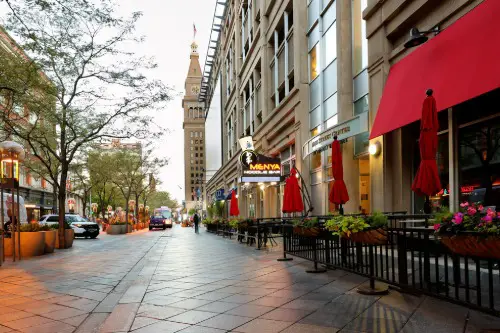
Denver is leveraging its rapid growth to become a model for high-tech urban living. The city is testing smart streetlights, traffic sensors, and autonomous transit systems as part of its Smart City initiative. Its airport, one of the busiest in the U.S., features facial recognition and biometric screening technology. Even the parking meters are app-connected and solar-powered.
But it’s not all tech for tech’s sake. Denver also leads in sustainability, with building codes that require solar readiness and green roofs on large structures. New neighborhoods like Peña Station Next are designed with self-driving shuttles and hyper-connectivity in mind. It’s a city where innovation is baked into the urban blueprint.
6. Raleigh, North Carolina
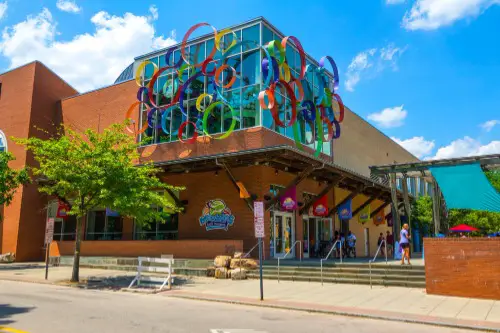
Raleigh has been flying under the radar, but it’s rapidly becoming a futuristic powerhouse. As part of North Carolina’s Research Triangle, it’s a magnet for biotech firms, cybersecurity startups, and AI research centers. The city has invested in smart water systems, high-speed broadband infrastructure, and predictive analytics for traffic flow. It’s quietly becoming one of the smartest cities in the Southeast.
What sets Raleigh apart is how seamlessly the tech blends with livability. Greenways are woven into urban planning, and many new neighborhoods are fiber-optic ready. City leaders have prioritized sustainability, rolling out electric bus fleets and solar incentives. It’s a city built not just for today’s residents, but for the next generation.
7. Portland, Oregon
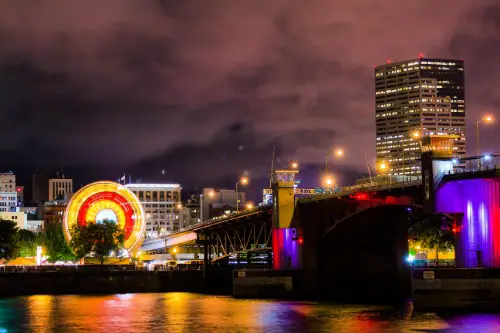
Portland’s forward-thinking culture makes it a natural laboratory for smart city experiments. It was one of the first U.S. cities to adopt a comprehensive climate action plan and it’s constantly updating its sustainability goals. Portland is testing smart traffic signals, open data platforms, and even blockchain-based land registries. Its commitment to bike infrastructure is world-class, with protected lanes and connected trails.
The future here also has a creative twist. Eco-conscious architecture, like the Bullitt Center—a self-sustaining “living building”—shows how Portland fuses design and tech. Its local food movement uses tech to track farm-to-table supply chains. And with public wi-fi, electric streetcars, and app-based mobility options, getting around feels frictionless.
8. Pittsburgh, Pennsylvania
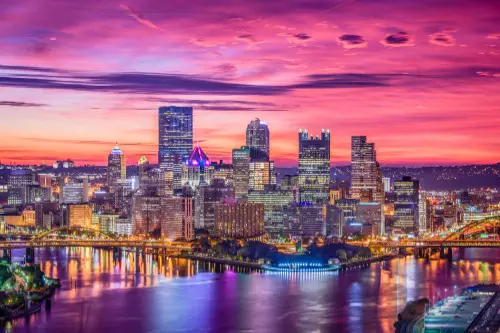
Pittsburgh may surprise you, but it’s quietly become a hotbed for robotics and AI. Carnegie Mellon University has made the city ground zero for autonomous vehicle development, with Uber and Aurora testing fleets on its roads. The city has also launched SmartPGH, a program using data to improve traffic signals and bridge infrastructure. Streetlights are being upgraded to collect environmental and usage data.
Once known for steel, Pittsburgh is now about steel nerves and silicon chips. Its low cost of living attracts startups, and city planners are eager to experiment. Public-private partnerships are making possible smart traffic corridors and clean energy hubs. It’s an old city with a new operating system.
9. Austin, Texas

Austin is where tech innovation meets laid-back cool. It’s not just the home of SXSW and a booming startup scene—it’s also one of the first cities to widely embrace electric scooters, 5G testing, and autonomous vehicle pilots. The city’s blend of AI startups, green energy initiatives, and smart city projects makes it feel like tomorrow’s world today. Even its library system is futuristic, with the Austin Central Library offering robot book sorters and a rooftop garden.
Beyond the tech, the culture is wired for the future too. Remote workers from around the world flock to Austin’s co-working spaces, attracted by the city’s pro-innovation policies. It’s also a hub for sustainable urban planning, with walkable neighborhoods and eco-conscious developments like Mueller. You’ll find more Teslas than trucks in some parts of town—a Texas twist no one saw coming.
10. Columbus, Ohio
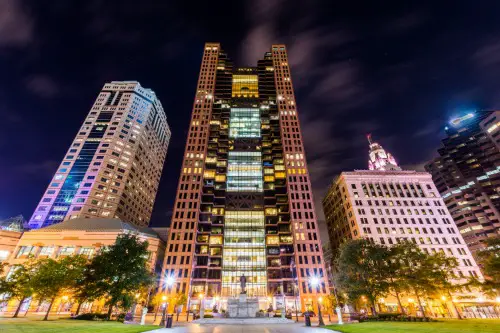
Columbus won the U.S. Department of Transportation’s Smart City Challenge, and it’s running with that title. It’s testing vehicle-to-infrastructure communication, which lets cars “talk” to traffic lights for smoother commutes. The city also launched autonomous shuttles and electric vehicle infrastructure well before many coastal metros. Its Smart Columbus Operating System gathers and shares real-time data to improve urban life.
Beyond the buzzwords, Columbus walks the walk. It’s making health care more accessible through tech-powered community initiatives. Public transit is becoming cleaner and smarter, and green building incentives are widely used. Columbus proves that the Midwest can absolutely be a leader in future-forward living.
11. San Diego, California
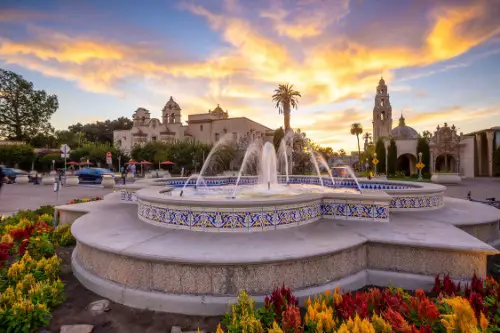
San Diego is blending beach vibes with bleeding-edge tech. The city has installed thousands of smart streetlights that monitor traffic, air quality, and even gunshots. It’s also a drone-friendly city with designated corridors for commercial UAV testing. Its deep connection to biotech makes it a leader in life sciences and precision medicine.
San Diego’s climate action plan includes a full switch to renewable energy and carbon neutrality by 2035. Solar energy is widespread, and electric car adoption is growing fast thanks to robust charging networks. Neighborhoods like East Village are full of IoT experiments and mixed-use innovation hubs. It’s a place where surfing and STEM go hand in hand.
12. Minneapolis, Minnesota
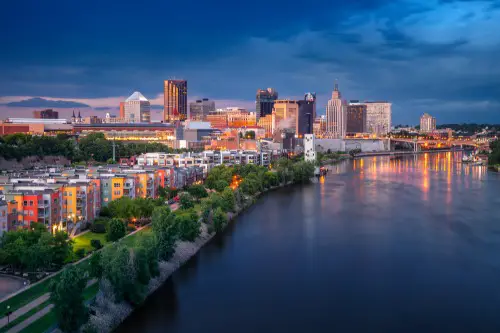
Minneapolis is reimagining what a high-tech, high-quality urban life looks like. It boasts one of the most advanced broadband infrastructures in the country, and it’s expanding its open data and civic tech tools. The city has heavily invested in clean transportation, including hybrid buses and bike-share programs. It’s also piloting AI for resource allocation and emergency response.
Despite frigid winters, Minneapolis is warm toward innovation. Urban planning here includes climate resilience, with green roofs and permeable pavement. The city’s parks and public spaces are equipped with Wi-Fi and smart lighting. And its equity-first approach to tech deployment is something more cities are trying to replicate.
13. Miami, Florida
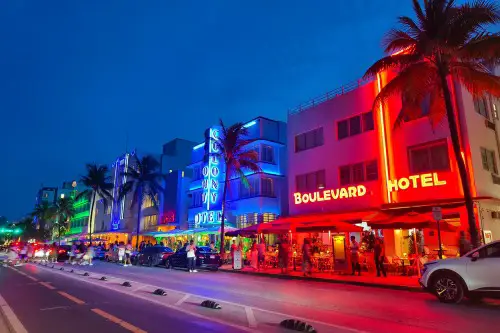
Miami is reinventing itself as a tech hub with serious momentum. Once overlooked in startup circles, it’s now attracting VCs, crypto innovators, and climate tech pioneers. Mayor Francis Suarez’s “Miami 3.0” vision includes digital currency integration, blockchain-based city services, and smart zoning. Tech companies are relocating here in droves, drawn by low taxes and digital-first policies.
But what’s really forward-thinking is how Miami is responding to climate change. With rising sea levels threatening its future, the city is investing billions in smart seawalls, elevated roads, and stormwater technology. It’s a fusion of survival and innovation that feels both urgent and visionary. If adaptation is the future, Miami is already living in it.


